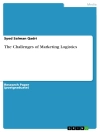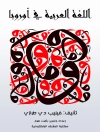The Palgrave Handbook of Media Misinformation provides a comprehensive and cutting-edge resource on the critical debates surrounding fake news and misinformation online. Spanning all continents and linking academic, journalistic, and educational communities, this collection offers authoritative coverage of conspiracy theories, the post-Trump and Brexit landscape, and the role of big tech in threats to democracy and free speech. The collection moves through a diagnosis of misinformation and its impacts on democracy and civic societies, the 'mainstreaming’ of conspiracy theory, the impacts of misinformation on health and science, and the increasing significance of data visualization. Following these diagnoses, the handbook moves to responses from two communities of practice – the world of journalism and the field of media literacy.
Spis treści
1. Introduction.- 2. Democracy, Disruption and Civic Crisis (Diagnosis).- 3. Fake News, Conspiracy, Propaganda (Diagnosis).- 4. Health, Science and Data (Diagnosis).- 5. Journalism (Response).- 6. Media Literacy (Response).
O autorze
Karen Fowler-Watt is Associate Professor of Journalism and Global Narratives, research theme lead for journalism education in the Centre for Excellence in Media Practice and a Senior Fellow of Advance HE at Bournemouth University. As a former journalist for BBC News and Current Affairs, she worked in the Middle East and the United States. She is a Fellow of the Salzburg Academy on Media and Global Change and currently working on a journalism pedagogy project with Global Voices. Her research and publications focus on reporting marginalised voices, immersive storytelling and re-imagining journalism education.
Julian Mc Dougall is Professor in Media and Education, Head of the Centre for Excellence in Media Practice and Principal Fellow of Advance HE at Bournemouth University. He is the author of over 100 books, articles, chapters and research reports, and is co-editor of the
Routledge Research in Media Literacy and Education book series.Previous publications include ’
The Routledge International Handbook of Media Literacy Education’ and
’
Fake news vs media studies: Travels in a false binary’.












